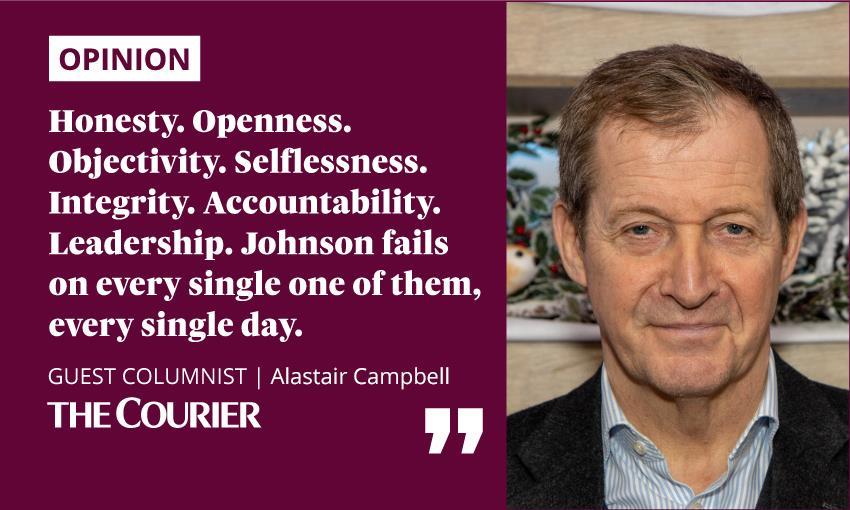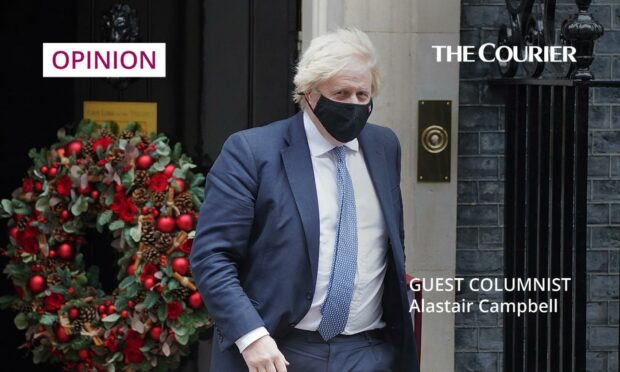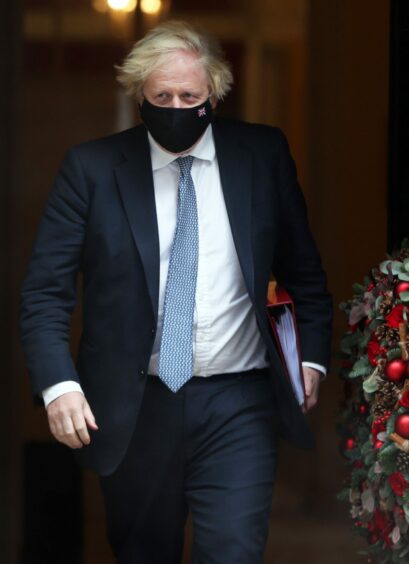A few days ago, as the Number 10 Christmas Party appeared to be fading from the political debate, I read and reviewed a book called Sad Little Men.
Written by Richard Beard, the sub-title explained the theme: “Private Schools and the Ruin of England”.
As Boris Johnson struggles to contain the fall-out over a Downing Street party that is fast becoming as damaging and as totemic as his former advisor Dominic Cummings’ trip to Barnard Castle, I had another flick through the book this morning.
It helps understand how he got into this mess, and why he is finding it so hard to get out of it.

Johnson went to Eton, and Beard, who went to Radley, argues that these “top” schools teach their students that they are superior beings.
They are bred never to say “I don’t know,” nor to admit to being wrong.
They are taught the power of insult.
And they are taught that if you get into a scrape, more important than what you did wrong, is how you get out of the tight spot you’re in.
This breeds the view that laws and rules are for others.
“For people like us,” writes Beard, “law was negotiable.”
Boris Johnson believes he can survive anything – including this Christmas party row
He says of Johnson: “He flaunted shamelessly what the rest of us tried to conceal: he was chaotic, unformed, cruel, slapdash, essentially frivolous.
“When he messed up he was just a boy, with his boyishly ruffled hair, and expected to be excused. An expert dissembler, he discovered the best place to hide was in plain sight.”
All this is worth bearing in mind as you watch Johnson lurch from one mis-step to the next.
He thinks he is cleverer than the people out to get him.
He has survived so many scrapes, at school and university, in journalism, in his private life, in his public life, that he thinks there is no scrape he cannot survive.
Truth is an optional extra. If you deny something often enough, it will go away.
A problem is always someone else’s fault, a success always his.
These are his character traits. He cannot change them.
A government defined by its leader’s rotten character
Not since Margaret Thatcher has a government been so defined by the character of its leader.
But there is a big difference.
For all that one could disagree with her political and policy positions, it was impossible not to recognise that Thatcher was someone of strong character, rooted in a clear set of values.
Because Johnson lacks the clear set of values, his character is closer to rotten than strong.
EXCLUSIVE: Video obtained by ITV News shows Downing Street staff joking about a Christmas party on 18th December last year.
No 10 has spent the past week denying any rules were broken. This new evidence calls that into question. pic.twitter.com/nKYK0tG0dQ
— Paul Brand (@PaulBrandITV) December 7, 2021
As Cummings said of him, he lies so effortlessly and so often that he no longer knows the difference between truth and untruth.
But once truth is debased as a currency of democratic debate, democracy itself is in peril.
That is why this story, and his repeated lying and dissembling about it, is about a lot more than Westminster tittle tattle.
It goes to the heart of who and what we have as our government.
‘The law was broken inside Number 10’
Am I allowed to quote Mrs Thatcher here?
“The first duty of government is to uphold the law,” she said.
“If it tries to bob and weave and duck around that duty when it’s inconvenient, if government does that, then so will the governed, and then nothing is safe – not home, not liberty, not life itself.”
The law was broken inside Number 10.
Johnson’s instinct was to deny, lie, obfuscate, throw out distractions, wait for it to blow over.
It’s all of a piece with his defending, not sacking, ministers found to have broken the ministerial code. When Priti Patel broke it, she stayed and the man who found her guilty left.
It’s all of a piece with declaring war on judges, trying to get ministers above the law, weakening the Electoral Commission, undermining Parliament, undermining the BBC, making it harder to vote and harder to protest, packing public bodies with donors and cronies, tolerating and encouraging corruption in Covid contracting…
If this was happening in the Balkans, Asia or Africa, the same Tory MPs who vote through all of the above would call it out as evidence of a rogue state not worthy of our support.
Johnson has failed, and so have his backers
This is about so much more than a Christmas Party. It is about whether we still believe in basic standards governing public life.
The real purpose of stuff like this is to remind judges who is boss, to try and secure a more compliant judiciary. https://t.co/2qT1iYNZeo
— Jo Maugham (@JolyonMaugham) December 6, 2021
We don’t need a review or an inquiry to establish what they should be. We have them already, as a result of John Major’s government’s response to sleaze in the mid-90s, most of which seems relatively innocent set against the crimes and misdemeanours of this lot.
The Nolan Principles. Honesty. Openness. Objectivity. Selflessness. Integrity. Accountability. Leadership.
Johnson fails on every single one of them, every single day.
And every day that Tory MPs continue to back him, they too play their own role in the debasing of public life.
The long-term consequences are incalculable and dire.
Alastair Campbell was Tony Blair’s official spokesperson and Downing Street director of communications. He is now a writer, communicator, consultant, strategist and mental health campaigner.











